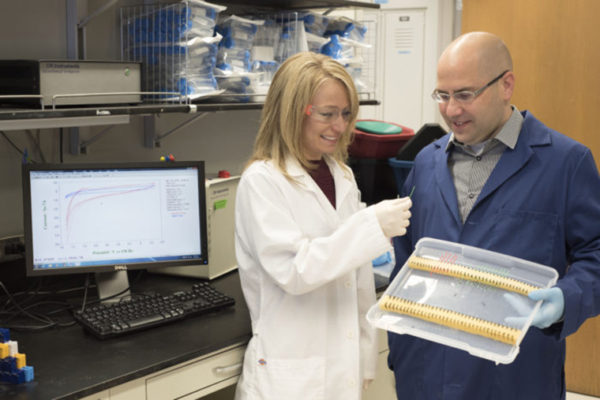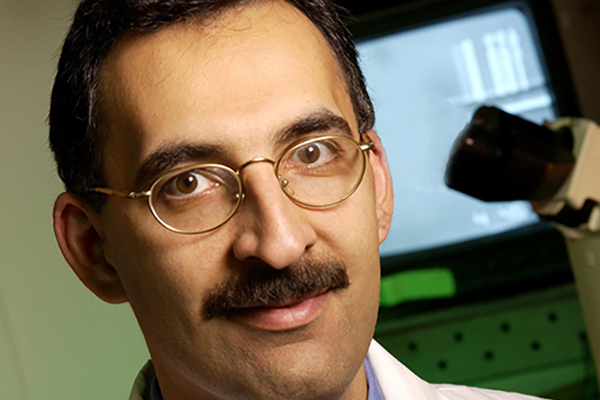Age, obesity, dopamine appear to influence preference for sweet foods
As young people reach adulthood, preferences for sweet foods typically decline. But for people with obesity, research from the School of Medicine suggests that the drop-off may not be as steep and that the brain’s reward system operates differently in obese people than in thinner people. The findings are published in the journal Diabetes.
New insight into role of amyloid beta in Alzheimer’s disease
New Alzheimer’s disease research details a technique that speedily measures levels in the brain of a damaging protein fragment, and insight into why mutations in a specific gene increase the risk of developing the disease. Both studies, from researchers at Washington University School of Medicine in St. Louis, are available online in The Journal of Experimental Medicine.
Obituary: Philip W. Majerus, professor emeritus of medicine, 79
Philip W. Majerus, MD, a renowned hematologist and professor emeritus of medicine at the School of Medicine, died at his home in St. Louis June 8 after a long illness. He was 79.
Obituary: Joseph R. Williamson, former professor of pathology, 84
Joseph R. Williamson, MD, a distinguished diabetes researcher and former professor of pathology at the School of Medicine, died June 9, 2016, in St. Louis after a long battle with Alzheimer’s disease. He was 84.
Probing proteins’ 3-D structures suggests existing drugs may work for many cancers
Examining databases of proteins’ 3-D shapes, scientists at School of Medicine have identified more than 850 DNA mutations that appear to be linked to cancer. The information may expand the number of cancer patients who can benefit from existing drugs. The study, published June 13 in Nature Genetics, detailed a list of the mutations and associated drugs that may work against them.
Barch receives 2016 AWN mentor award
Deanna Barch, chair of the Department of Psychological & Brain Sciences in Arts & Sciences and the Gregory B. Couch Professor of Psychiatry in the School of Medicine, is the 2016 recipient of the mentor award from the Academic Women’s Network at Washington University.
Guilak receives award from Osteoarthritis Research Society
Farshid Guilak, PhD, a professor of orthopaedic surgery at Washington University School of Medicine and director of research at Shriners Hospitals for Children-St. Louis, has received the Basic Science Research Award from the Osteoarthritis Research Society International.
New clues to understanding autoimmune diseases
With research that points to potential therapeutic targets for autoimmune diseases, researchers at Washington University School of Medicine in St. Louis have identified genetic master switches that turn up – or down – the activity of specific types of immune cells.
Gut microbes’ metabolite dampens proliferation of intestinal stem cells
New research at Washington University School of Medicine in St. Louis indicates stem cells located in “pockets” in the intestine avoid contact with a prominent metabolite produced by beneficial microbes living in the gut. That metabolite – butyrate – restricts the proliferation of stem cells, potentially hampering the intestine from repairing itself after an injury or damage.
Brophy named to orthopaedic surgery board
Sports medicine specialist Robert H. Brophy, MD, associate professor of orthopaedic surgery at Washington University School of Medicine in St. Louis, has been elected to the American Academy of Orthopaedic Surgeons board of directors.
View More Stories









